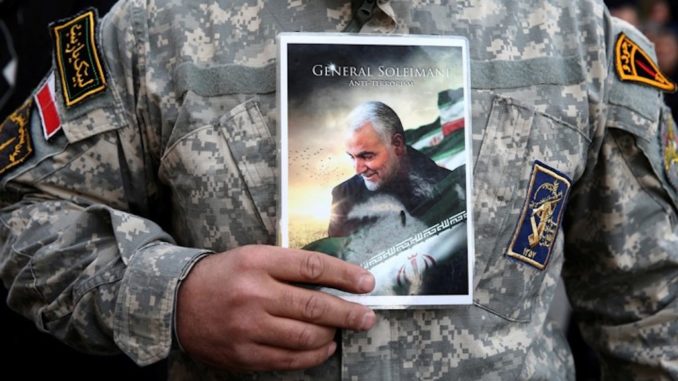
…how will this situation affect Nigerians? The answer is: We really don’t know for now. However, this is an area that will require effective diplomacy and constant management to ensure that Nigerians are safe and protected – regardless of whether we end in an actual war or not. As the world gets more interconnected, the ripples of this action could cause a wave that we need to respond to.
The world began 2020 with news that the U.S. had conducted an operation that killed Major-General Qassem Soleimani, the head of the Iranian Islamic Revolutionary Guard Corps. The strike, announced and ordered by President Trump, was received with a range of responses – from trivial expectations of World War III to genuine worries about future prospects. But while most media outlets look at the likelihood of repercussions in this ongoing conflict, we look at how this can affect issues much closer home. Why should the average Nigerian care about the death of Soleimani, and how does this affect our 2020?
Who Was Qassem Soleimani?
Soleimani was a very influential commander in Iran who, depending on your source, was especially influential in the execution of Iranian foreign policy – second only to the Supreme Leader himself, Ali Khamenei. His force, a roughly 15,000 strong Quds corps, meant he had armies in Iran, Iraq, Palestine and Yemen, making him a very key player in any dialogue concerning the region’s instability. His influence in skirmishes and battles in the region naturally gained him enemies in Israel and the United States – notably demonstrated in a letter he sent to then U.S. commander, General David Petraeus stating that he controlled Iranian policy towards Iraq, Lebanon, Gaza and Afghanistan, while he was also accused of planning attacks on U.S. troops in the region.
His determined support for the Ayatollah’s ambition for a Shi’ite empire in the region meant he had a lot of supporters, both in the region and abroad, who bolstered his efforts. However, in a region with many different sects and groups, this also presented some enmity. Soleimani’s death deprives the Iranian army of a seasoned and feared commander, as well as raises questions about how future engagement – peaceful or otherwise – will be with the United States and the West. And in the region, he was a stable force who fought against the Sunni militant groups.
How Does This Affect Nigeria?
If one has been active on social media, one would be forgiven for assuming that the world is preparing for yet another World War. Yet, the prospects for such an engagement are low. To understand where this really affects Nigeria, we need to look at the economy, security and our foreign relations.
Nigeria’s notoriously porous borders might also see increased monitoring. Primarily, however, the region is home to a number of deadly militia groups – including Boko Haram. It remains to be seen if these groups engage in a mass coordinated response to Soleimani’s death. It also leaves the question of another potential split among sects….
The first big news after the assassination of the General was the rise in the price of oil. This will definitely increase revenue for our budget, since the rise will make our projections go over Nigeria’s previously conservative price benchmark. How long this lasts depends to be seen, especially if, as expected, most of the funds are earmarked for potential security activities and to shore up foreign aid that might be reduced as donor countries also mobilise funds for unexpected emergencies.
The second major aspect is on security challenges. The Nigerian Police announced increased routines and heightened awareness in the aftermath of the death. Nigeria’s notoriously porous borders might also see increased monitoring. Primarily, however, the region is home to a number of deadly militia groups – including Boko Haram. It remains to be seen if these groups engage in a mass coordinated response to Soleimani’s death. It also leaves the question of another potential split among sects, and without the strong presence of unifying factions, more radical elements could emerge and threaten even greater terrorist attacks. Furthermore, this could be a catalyst for increased protests among Shi’ite, as a response. In 2015, Sheikh Ibraheem El-Zakzaky and his wife were arrested, prompting the more recent and increasingly volatile phase of Shi’ite unrest in Nigeria. This was because of an accusation that they were behind the attempted attack on the chief of Army staff, Lt-Gen Tukur Buratai. The interaction between these groups could spill out into warfare if not contained and well managed.
The final aspect concerns foreign relations. Beyond the nuanced considerations and intricate geopolitics in the region, most of Iran’s neighbours have condemned the assassination of General Soleimani. Most European powers have also preached restraint in any response to this, including many traditional U.S. allies. Nigeria is a member of both the Organisation of Islamic Countries (OIC) and the D-8 Organisation for Economic Cooperation along with Iran. Nigeria and the continent’s response might also see a renewal of religious-based alliances, which might affect ongoing diplomatic processes. The aftermath of this could be more potent in the Lake Chad region, with many states being affected by the Boko Haram insurgency and this potentially affecting our foreign policy engagement.
So how will this situation affect Nigerians? The answer is: We really don’t know for now. However, this is an area that will require effective diplomacy and constant management to ensure that Nigerians are safe and protected – regardless of whether we end in an actual war or not. As the world gets more interconnected, the ripples of this action could cause a wave that we need to respond to.
Nimah Arigbabu, a foreign policy analyst and co-founder of the Ynfpinitiative, has experience in policy development at international and domestic levels.
Picture credit: West Asia News Agency (WANA)/Nazanin Tabatabaee/Reuters.
END

Be the first to comment